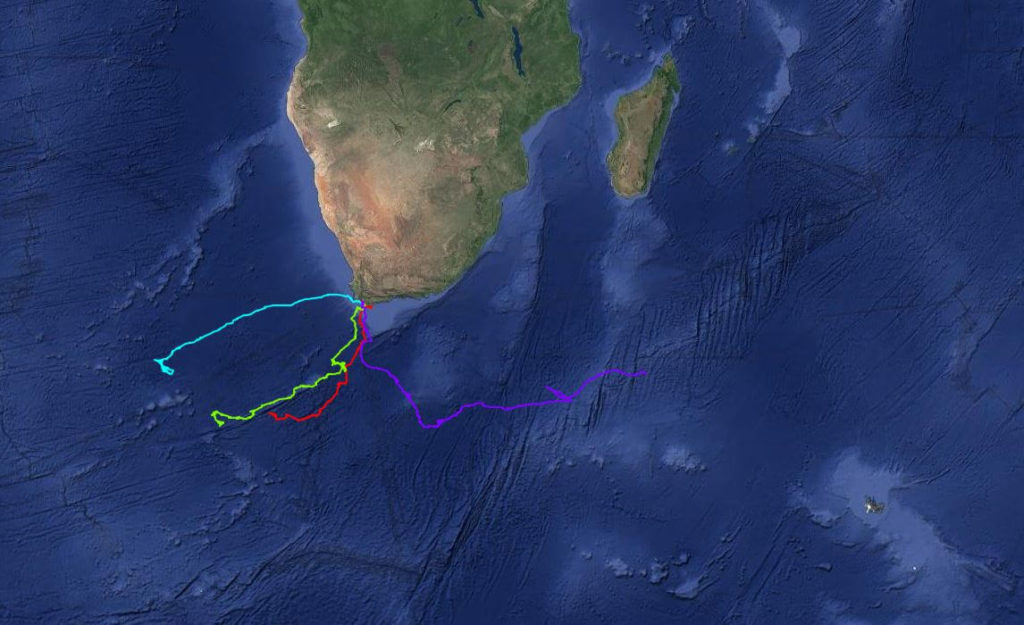Satellite tag program to follow southern right whales along their migration
In early October, researchers at the University of Pretoria’s Mammal Research Institute (MRI) Whale Unit deployed satellite transmitters on four adult female southern right whales, which will allow them to investigate, in detail, the southbound migration and feeding behaviour of these animals. Research of this kind is of paramount importance when considering the drastic changes that have been observed in southern right whale migration, reproduction, and body condition in the last 10 years. These changes may be explained by reduced prey availability in the Southern Ocean, likely due to climate change.
The southern right whale population that breeds off the South African coast has been monitored by the MRI Whale Unit for the past 42 years. The most recent results of this research show drastic changes in the population in the past decade, including significantly decreased reproductive success and body condition (or “fatness”), and an alteration in foraging and migration behaviour, all of which have resulted in lower numbers of southern right whales being seen off our shores in the past years. The main food source for hungry southern right whales is found thousands of kilometers away from where they will nurse their young. Scientists describe southern right whales as “capital breeders”, which means that their successful migration and calving is dependent on them eating enough during their feeding season in the Southern Ocean. They need to have an adequate body condition in order to be able to migrate and calve successfully.
The changes observed by the MRI Whale Unit point strongly toward decreased food availability for these whales on their Southern Ocean feeding grounds. It is therefore of utmost importance to identify these feeding grounds so that the Whale Unit can assess what climatological and/or oceanographic changes may lie at the root of this conservation problem. As one of the first steps to finding these answers, four satellite tags were deployed on adult female southern right whales as a pilot study. These tags will provide us with information on the location of each individual for up to one year maximum, allowing the Whale Unit to investigate each animal’s migration and foraging behaviour in more detail. If all goes well, 30 more satellite transmitters will be deployed within the next two years.
You can follow the whales in real time on the MRI website. For more information, please contact Dr Els Vermeulen: els.vermeulen@up.ac.za
This research project is in collaboration with Dr Alex Zerbini and Dr Amy Kennedy from the National Oceanic and Atmospheric Administration (NOAA), University of Washington’s Cooperative Institute for Climate, Ocean and Ecosystem Studies (CICOES/UW), and the Marine Ecology and Telemetry Research (MarEcoTel). Funding for this research project is provided by Instituto Aqualie (Brazil) and the MRI Whale Unit.
Contributor: Els Vermeulen
